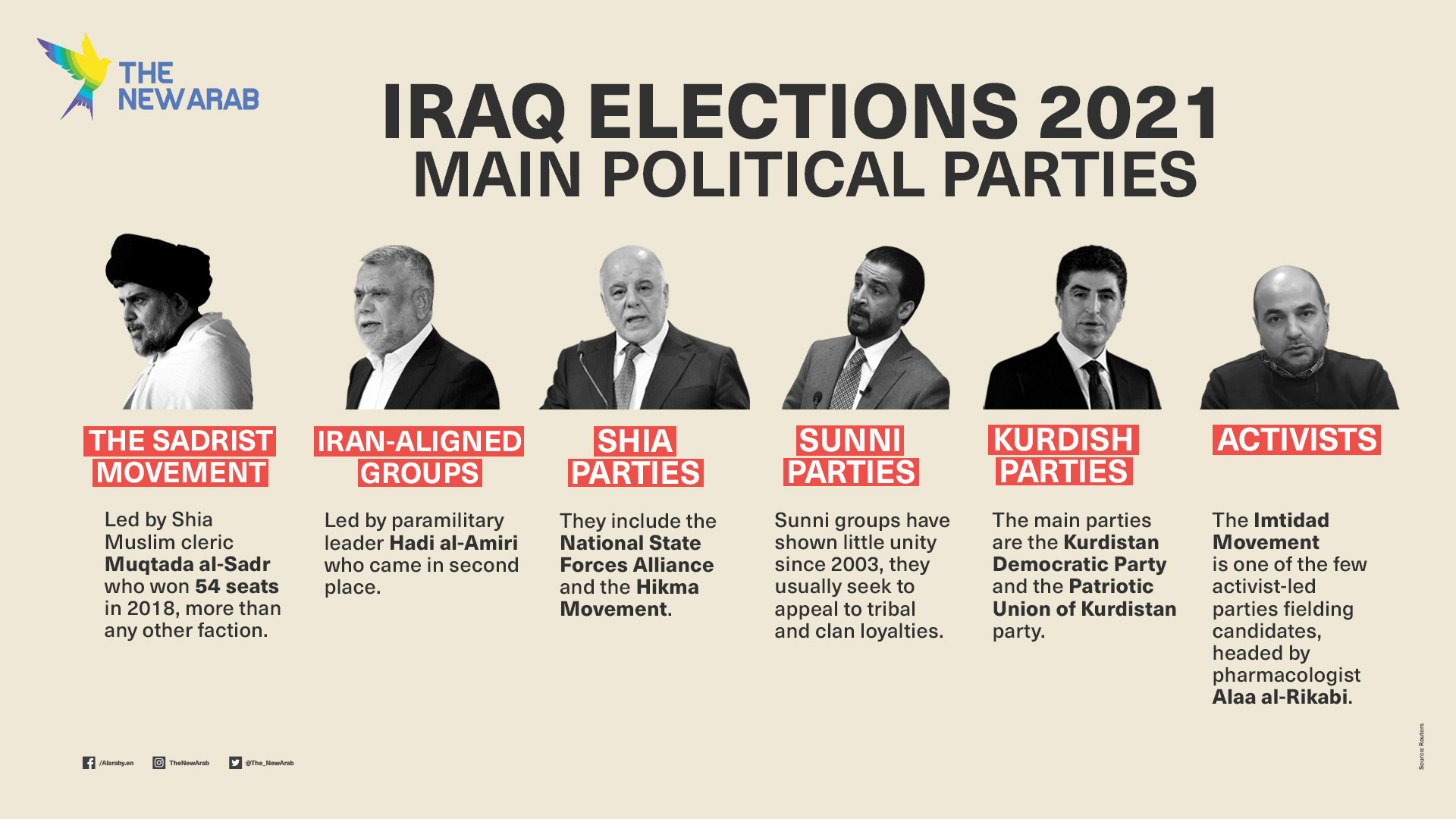Iraq election commission denies pressure from militias, says results ‘normally’ subject to change
Iraq’s Independent High Electoral Commission has said that the results of the parliamentary elections which took place earlier this week are subject to change and that it rejects any “pressure” from political groups.
The electoral body’s latest statement came after it said that it was recounting votes in Baghdad and announced changes to previously declared results, following criticism and threats from pro-Iran militia groups and parties linked to them.
Initial results showed that the Sadrist Movement, led by Shia cleric Muqtada Al-Sadr, had won the greatest number of votes, gaining 73 seats in the 329-seat Iraqi parliament.
Sadr draws his support mostly from poor Shia Iraqis and has previously had an ambivalent relationship with Iran. The Fatah Alliance, a party linked to pro-Iran militias, performed poorly by contrast, winning only 14 seats.
The electoral commission later announced revised results giving pro-Iran groups some more seats at the expense of the Sadrists and independents, but the Sadrists remain in the lead with the Fatah Alliance trailing far behind.
A group of pro-Iran parties known as the “Coordination Framework for Shia Political Forces” led by former Prime Minister Nouri Al-Maliki issued a statement on Wednesday saying that current election results “put civil peace in danger”.
The election commission is currently recounting votes by hand for the second day running in Baghdad’s Green Zone. Votes from thousands of polling stations are being recounted and observers from various political and civil society groups are present.
Hassan Salman, a spokesperson for the electoral commission told the Iraqi National News Agency on Thursday that “election results are subject to change, and people should wait for the final results after all challenges are resolved”.
He added that “the [overall] results were changed yesterday after results from some polling stations were counted”, describing this as “a normal issue”, and denying that the electoral commission had given in to pressure from militias.
“The election commission has not been influenced in any way by pressure and there have been no flaws in the electoral process,” he said, adding that 8,547 polling stations across the country had not yet sent in their results.
Pro-Iranian militias including Asaib Ahl al-Haq and Kataib Hezbollah, who are part of the state-sponsored Popular Mobilisation Forces coalition had earlier described the election results as a “conspiracy against the Popular Mobilisation Forces,” vowing to resist them.
Sources in Baghdad told The New Arab’s Arabic-language service that they expected the Election Commission to issue a new revision to results on Thursday afternoon.
Iraq’s parliamentary elections were due initially to take place in 2022 but were brought forward to this year in response to widespread protests against government corruption.
However, they have been marred by a low turnout, with many anti-corruption activists boycotting the vote.

![Votes are being counted by hand in Baghdad [Getty]](/sites/default/files/styles/large_16_9/public/2021-10/GettyImages-1235861462.jpg?h=199d8c1f&itok=ZN2eZWmY)

![President Pezeshkian has denounced Israel's attacks on Lebanon [Getty]](/sites/default/files/styles/image_684x385/public/2173482924.jpeg?h=a5f2f23a&itok=q3evVtko)



 Follow the Middle East's top stories in English at The New Arab on Google News
Follow the Middle East's top stories in English at The New Arab on Google News


